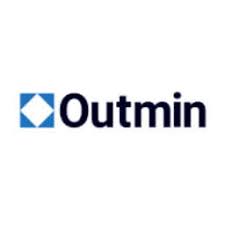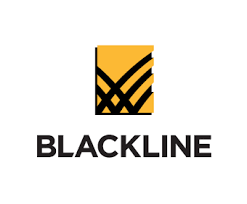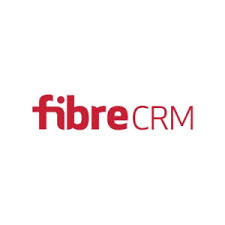Outmin: Pioneering AI-Driven Bookkeeping for SMEs

Dublin-based fintech Outmin is transforming the financial management landscape for small and medium-sized enterprises (SMEs) through its AI-powered bookkeeping platform. Founded in 2020 by David Kelleher and Ross Hunt, Outmin targets SMEs in Ireland and the UK, which often operate with limited finance teams. The company aims to alleviate the administrative burden of manual accounting, streamline reporting, and provide actionable financial insights that support growth and operational efficiency.
Core Functionality and Technological Innovation
Outmin’s platform combines artificial intelligence, machine learning, and cloud infrastructure to automate several accounting processes critical to SMEs. Its five main functionalities are:
- Invoice Processing and Reconciliation – The platform imports and categorises invoices automatically and reconciles them with corresponding bank transactions. This automation reduces errors, accelerates bookkeeping, and allows businesses to close their books more quickly.
- Real-Time Financial Reporting – Users can access up-to-date balance sheets, cash flow statements, and profit and loss reports at any time. This continuous visibility enables business owners to make informed financial decisions without relying solely on periodic reports.
- Tax Compliance and Payroll Management – Outmin calculates VAT, payroll, and other statutory obligations, reducing the risk of late filings or errors. Direct integration with tax authorities in Ireland and the UK ensures compliance while saving businesses time.
- Supplier and Client Management – The system monitors supplier payments, automates client invoicing, and flags overdue accounts. By maintaining clear records, SMEs can optimise cash flow and reduce administrative bottlenecks.
- AI-Powered Analytics – Beyond transactional bookkeeping, Outmin uses AI to provide insights into spending patterns, client profitability, and operational bottlenecks. These insights act as a financial advisory layer, helping businesses make strategic decisions based on real-time data.
These features collectively reduce the time SMEs spend on manual accounting and help business owners focus on growth, hiring, and client development rather than administrative tasks.
Funding and Strategic Growth
In May 2025, Outmin closed a €4 million funding round led by Praetura Ventures, with participation from the Northern Powerhouse Investment Fund II. The funds are allocated to expanding engineering teams, enhancing AI capabilities, and increasing market penetration across the UK and Ireland. The round also supports marketing initiatives aimed at increasing adoption among technology, hospitality, and professional service SMEs.
To strengthen governance and strategic oversight, Outmin appointed Feargal O’Rourke, former Managing Partner of PwC Ireland, as Chairman of the board. O’Rourke’s experience in advisory and accounting is expected to guide the company’s scaling strategy, regulatory compliance, and enterprise partnerships. His appointment signals Outmin’s ambition to become a significant player in the SME fintech ecosystem.
Market Context and Competitive Landscape
The UK and Irish SME sectors are substantial, with more than 5.5 million SMEs in the UK and roughly 250,000 in Ireland. SMEs employ over half of the private sector workforce but often operate with minimal finance teams. Managing bookkeeping manually can consume hundreds of hours per year, creating demand for automated solutions.
Outmin competes with established platforms such as QuickBooks, Xero, and Sage. While these providers offer cloud accounting, they generally rely on manual transaction categorisation and reconciliation. Outmin’s AI-driven automation allows it to reduce administrative overhead by automating more than 70% of bookkeeping tasks, a feature analysts suggest could save SMEs up to 150 hours annually and cut operational costs by 25–30%. By combining automation with real-time analytics and integrated client and supplier management, Outmin positions itself as a differentiated alternative in the crowded accounting software market.
Clientele and Industry Applications
Outmin primarily serves SMEs in technology, hospitality, and professional services, sectors that often operate lean teams and require timely financial insights. Startups in particular benefit from Outmin’s AI, which enables them to scale without adding administrative staff. Case studies indicate that businesses using Outmin reduce manual bookkeeping by an average of 150 hours per year, while also achieving faster reporting cycles and more accurate cash flow forecasts.
The platform is scalable, allowing companies to accommodate growth in transaction volumes and multiple user roles. Teams can assign permissions, track departmental spending, and integrate corporate cards or expense systems, providing centralized oversight for finance managers. The combination of operational efficiency and strategic insight makes Outmin suitable for a wide range of SME sizes and structures.
Trust, Security, and Adoption
Outmin is cultivating a strong reputation among early adopters. Reviews highlight ease of use, an intuitive dashboard, and responsive customer support. Clients value the platform’s combination of automation and actionable insights, which distinguishes it from traditional accounting software. Trustpilot ratings indicate high satisfaction, particularly regarding time savings and streamlined invoicing.
Security and regulatory compliance are core priorities. Outmin employs encryption, two-factor authentication, and secure cloud storage. Customer funds are segregated in regulated financial institutions, and all processes comply with Irish and UK accounting and data protection regulations. This compliance ensures that SMEs can adopt the platform with confidence, mitigating operational and reputational risk.
Future Outlook
Outmin is positioned for accelerated growth in response to increasing digital adoption among SMEs. Analysts predict that AI-driven bookkeeping platforms will gain further traction as businesses seek efficiency, accuracy, and strategic financial insight. Outmin’s expansion strategy includes sector diversification, potential integrations with payments and lending services, and broader adoption across UK and Irish SMEs.
The company’s combination of AI automation, real-time analytics, and user-focused design is likely to drive adoption in markets where SMEs have historically relied on manual processes. By enabling finance teams to operate more efficiently, Outmin could become central to SME financial operations rather than a supplementary tool.
Key Takeaways
Outmin exemplifies how AI and cloud technology can transform SME financial management. By integrating invoicing, reconciliation, tax compliance, payroll, and analytics into one platform, it reduces administrative burdens, improves accuracy, and provides actionable insights. With €4 million in new funding, experienced leadership, and growing market adoption, Outmin is well-positioned to expand across the UK and Irish markets. The platform offers SMEs an efficient, scalable, and modern alternative to traditional accounting software, addressing a critical need in a sector that represents the backbone of the economy.





